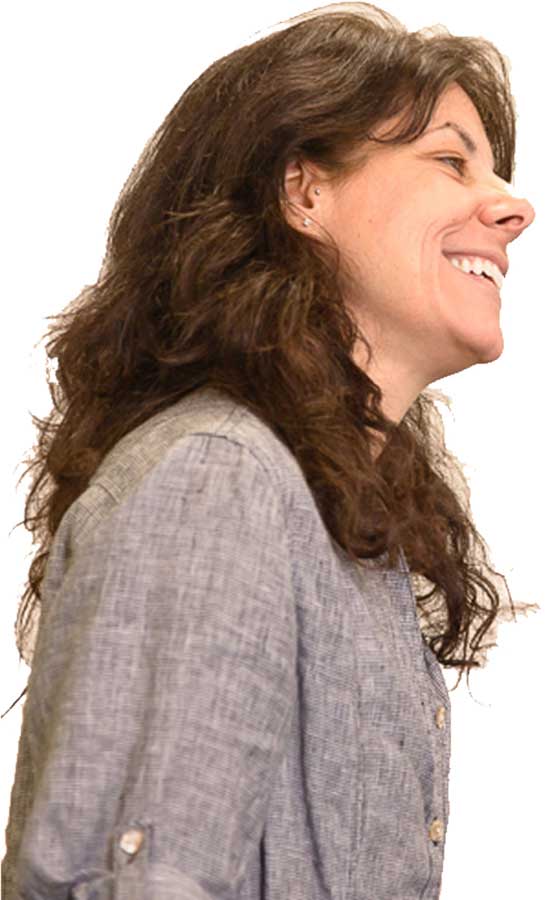Mireault suggests students speed date–sort of
Professor of Behavioral Sciences Gina Mireault
Get lost. Speed date. Be a baby. Such was the advice Professor of Behavioral Sciences Gina Mirault offered on Wednesday, Jan. 22, in her talk titled “Where are you now? and other (Dis) orienting Questions.”
Margo Warden, director of first year experience, began the school’s (Re)Orientation event by saying how important it is to have an event to come back together after the long break. She encouraged students to take a moment to reflect on the good and bad parts of last semester to prepare for the new one.
Warden also introduced Beth Walsh, the new career development coordinator, as well as new peer mentors.
President Barbara Murphy spoke next and continued the theme of returning to school and continuing students’ education.
“The decision to come and rejoin a learning community,” Murphy said, “is something that is moving you just that much closer to your future.”
She then introduced Mireault, noting she has been at Johnson State College since 1992, has attended many international conferences, conducted research on the development of young children and early lifespan young adults, and has been recognized for several sabbaticals, one of which she’s on right now.
Mireault started off her keynote speech by explaining how students are already familiar to many aspects of college, but orientation has more to do with psychology than geography.
“It has something to do with standing on your head,” she said. “It has a lot to do with falling in love on a speed date, and it has a little bit to do with thinking like a baby.”
She said the students are at a halfway point, which has to do more with internal rather than external change.
She shared that in her freshman year, she was halfway between missing home and getting used to the college experience.
“Being in-between is a very undefined space,” Mireault said. “You haven’t entirely left one place, but you haven’t arrived at the next place either.”
Being in-between is psychologically challenging, especially if you’re able to move on to the next place, she said.
She suggested that standing on your head and learning how to internally balance is valuable in this transitional period when you’re being pulled forward and backwards.
“At this point all you can know is you don’t know,” Mireault said, “and that’s exactly the right thing to know, or not know.”
Right now between 18-35 are the most stressful years of life, she said, and there’s a great deal of pressure put on knowing who you want to be.
“The future is yet to be known,” she said, “and you can only answer for who you are, what you like, and what you want right now.”
Young adults who deal with this part of life with ambiguity, and are at ease not knowing the future, handle it the best.
“College is a lot like speed dating,” Mireautlt said. “You have just four years to fall in love, and I don’t mean with a person.”
What she means by this is that students have only four years to spend time exploring different subjects and majors until they can find the one to fall in love with.
“Get out there and date,” Mireault said. “You should date every department on campus, even the ones with a bad reputation.”
Mireault disclosed that she’s seen so many students play it safe and pick a major just because they think it will lead them to a job. But the problem is that this brings out the least in students, and there’s no way it will be able to bring out their best. She stressed that college is the time when students should be taking chances and exploring as many opportunities as they can, in order to fall in love.
“College is the best chance to truly discover what you love,” Mireault said, “and what loves you back.”
In closing Mireautlt described that in her research of infants she’s found that infants benefit from becoming disoriented and reoriented. Babies are in a constant state of accommodation and assimilation and are not worried by becoming disoriented by the constant change in their understanding of the world.
Students, she says, should approach college the same way and not be afraid of change and ambiguity.
Ben Simone joined the Basement Medicine Staff in Spring 2014, assuming the position of staff reporter.



